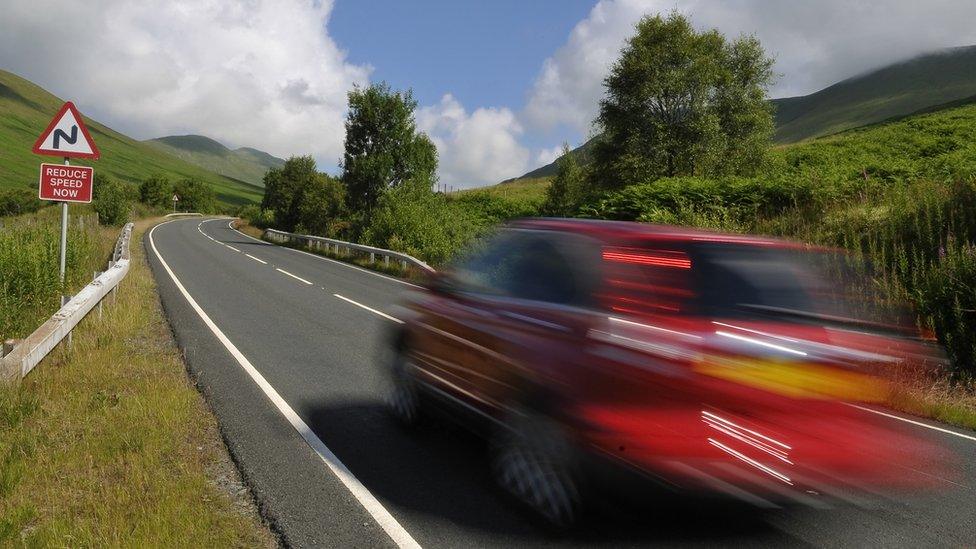Motoring prosecutions in Wales at five year high
- Published
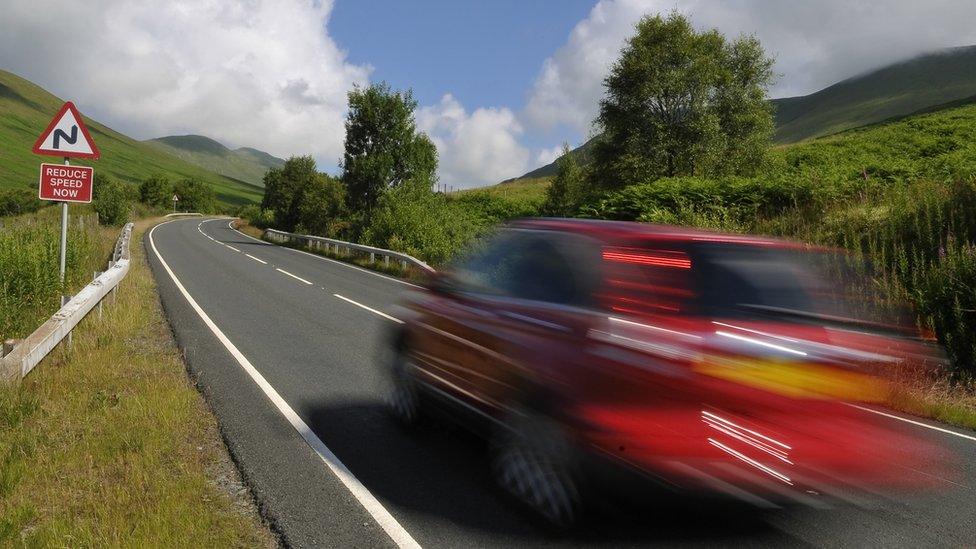
Motoring offences brought before magistrates in Wales have reached a five year high, figures have revealed.
Ministry of Justice data, external show prosecutions rose from 43,036 in 2012 to 64,769 in 2016.
Cases involving motoring offences which caused death or injury rose from 39 in 2015 to 62 in 2016 - a 59% increase.
Road safety charity Brake said speeding was "a factor in many deadly crashes" and called for urgent action.
The call is backed by the family of an 18-year-old man from Cardiff who died after a high speed car crash in 2004.
Dominic Storey was a passenger in a car driven by a man who was sent to a young offenders' institution after admitting causing death by dangerous driving.
Mr Storey's sister Annis said: "As someone who has been bereaved as a result of a road crash, I don't want any other family to go through the same suffering we are.
"Breaking the speed limit means it takes longer to react and brake in the event of an emergency, increasing the chance of causing death and serious injury."
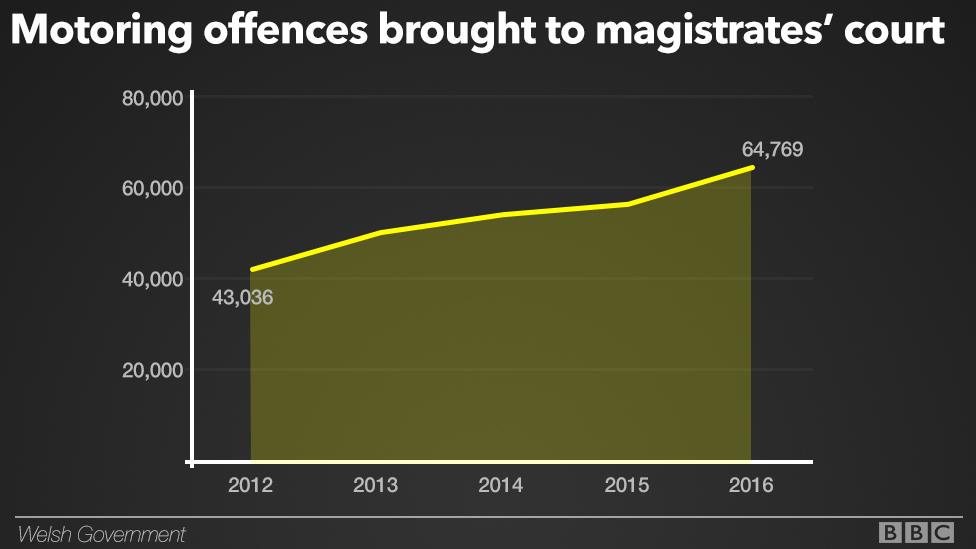
The total number of fixed penalty notices (FPNs) issued by police and traffic wardens for motoring offices in Wales last year was 76,327, with speeding accounting for over 70%.
The number of tickets issued is actually down by 5.6%, but the number of cases ending up in court rose by 12.9%
Jason Wakeford, director of campaigns for Brake, said: "Speeding is a factor in many deadly crashes and remains a major problem on the roads."
The charity is calling for a default 20mph limit in built up areas, increased enforcement and devices which help drivers stay within the limit to be fitted as standard to new vehicles.
"Driving is unpredictable and if something unexpected happens on the road ahead, such as a child stepping out from between parked cars, it's a driver's speed that determines whether they can stop in time and, if they can't, how hard they will hit," said Mr Wakeford.
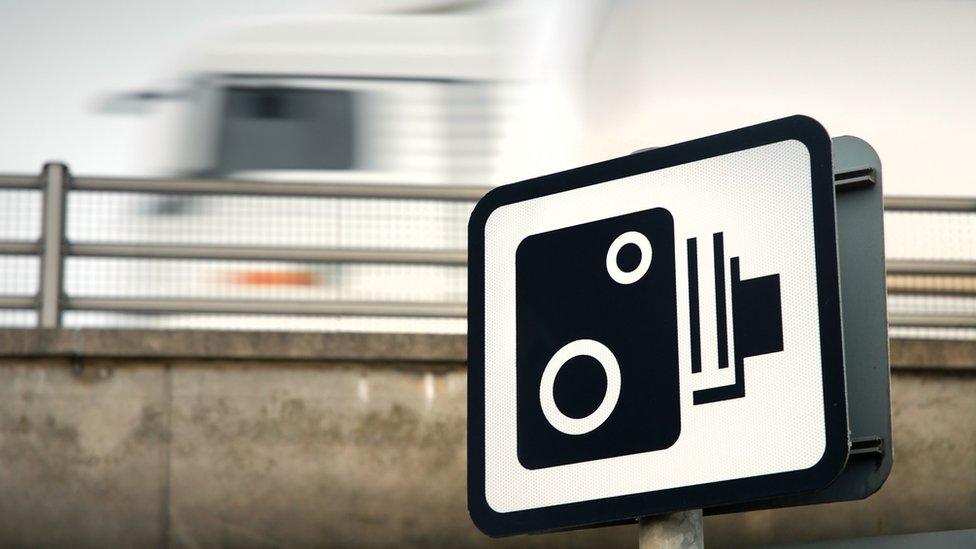
Insp Dave Cust from North Wales Police roads policing unit said the force has a "robust strategy" to deal with the fatal five offences, including speeding, drink and drug driving, not wearing a seatbelt, using a mobile phone and dangerous driving.
"People committing one of the fatal five offences are more likely to be involved in a fatal collision than those who are not," he said.
"Every day officers across various departments undertake prevention and intervention activities on our roads.
"All of our campaigns are with the sole aim of attempting to reduce the number of serious collisions on our roads and are part of a continuing programme to improve road safety for all through engagement, education and enforcement where necessary."
A South Wales Police spokeswoman said: "Roads policing officers patrol the roads of south Wales and will stop people and put them before the courts if they are found to be breaking the law whilst driving.
"We regularly publicise the dangers and consequences of breaking road safety laws and we undertake education initiatives to raise awareness and to change behaviour on the roads."
- Published24 February 2017
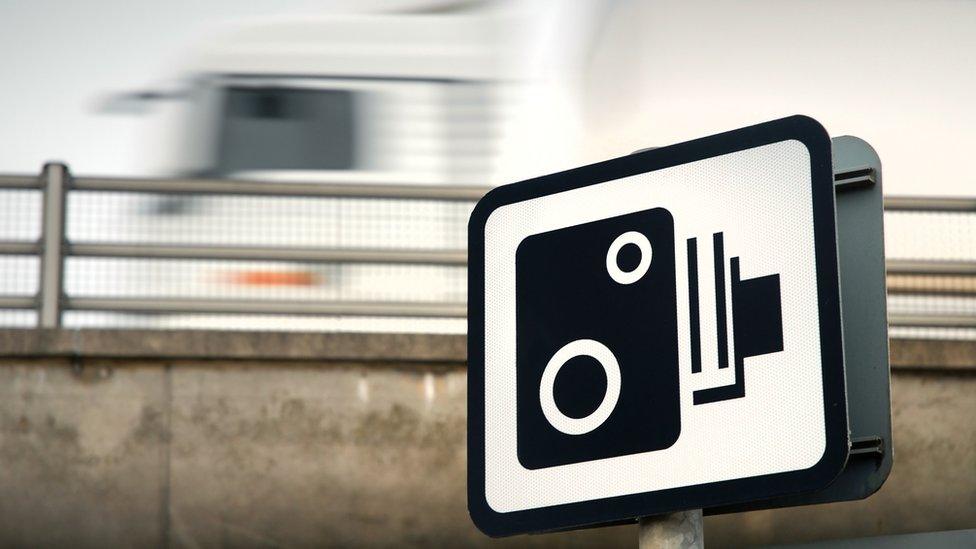
- Published15 October 2016
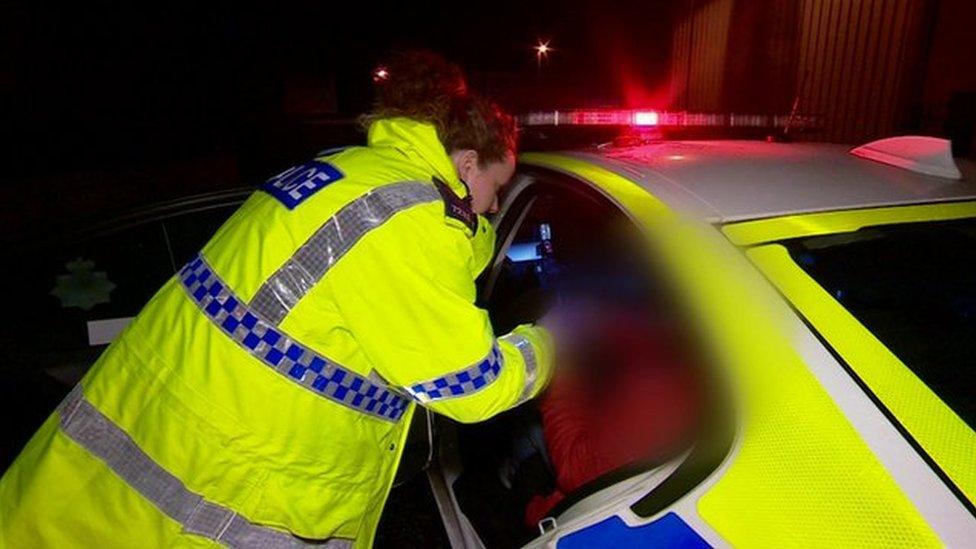
- Published24 April 2017
